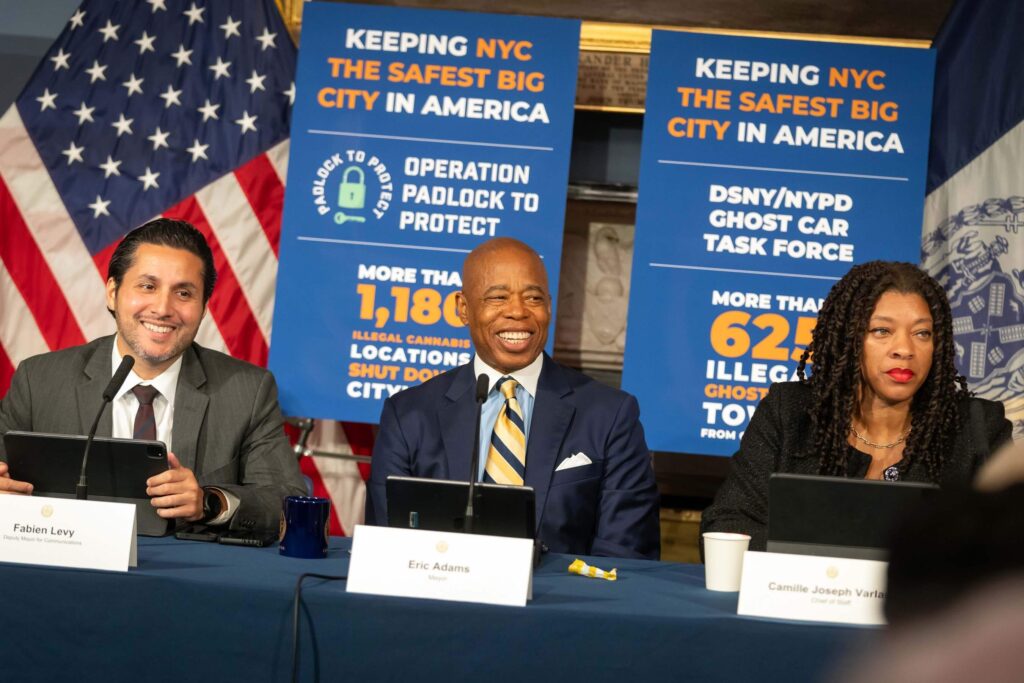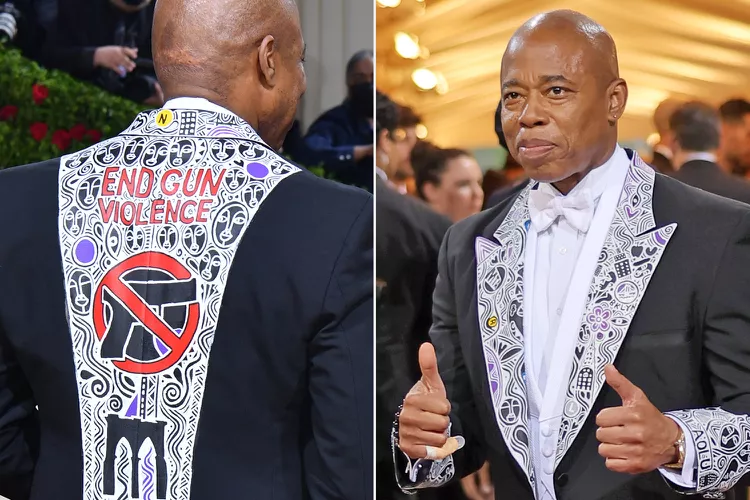NYC Mayor Eric Adams :The Policeman Who Became Mayor
New York City Mayor Eric Adams is facing federal charges related to bribery, fraud, and soliciting illegal campaign contributions from foreign nationals.

Photo : Eric adams’ X “Twitter”
These charges, unsealed following a months-long investigation, allege that Adams accepted illegal donations and benefits, including travel perks, in exchange for political favors. The investigation also highlights connections between his campaign and foreign interests, notably from Turkey.
Adams has denied the accusations and pledged to fight the charges while maintaining his innocence.
What you don’t know about Eric Adams
When Eric Adams took office as New York City’s 110th mayor in January 2022, he brought with him a complex blend of perspectives: the disciplined mindset of a former police captain, the lived experience of a Black man who faced police brutality in his youth, and the political savvy of a seasoned public servant.
Adams’ rise to the mayoralty reflects not just his personal journey but also the evolving landscape of New York City—its struggles with public safety, inequality, and the aftershocks of the COVID-19 pandemic.
The Policeman-Turned-Reformer
Adams’ background as an NYPD officer is central to his identity, yet his relationship with law enforcement is far from straightforward. He spent over 20 years in the NYPD, rising to the rank of captain, but was never content to simply uphold the status quo.
In the early 1990s, Adams co-founded 100 Blacks in Law Enforcement Who Care, an advocacy group that pushed for police accountability and racial justice.
He wasn’t afraid to criticize his own department, particularly over its treatment of minority communities.
This made him both a unique figure in law enforcement and a bridge between communities and the institution that often alienated them.
Adams’ dual role as both insider and reformer gave him a deep understanding of how the system worked—and where it needed to change.
His political career was marked by efforts to balance tough-on-crime policies with calls for reform, an ethos that would define his mayoral campaign and the early days of his administration.

Photo: ANGELA WEISS/AFP/Getty; Mike Coppola/Getty
Navigating the Challenges of a Post-Pandemic NYC
Adams inherited a city still reeling from the COVID-19 pandemic, which had not only devastated the economy but also deepened social inequalities.
Small businesses shuttered, tourism slowed to a trickle, and thousands of New Yorkers struggled with unemployment and housing instability.
While previous mayors had left their mark on the city with ambitious development projects or major reforms, Adams’ immediate task was much more foundational: restoring confidence in New York’s recovery and addressing residents’ basic needs.
Public safety quickly became a focal point of Adams’ tenure, as the city saw spikes in violent crime and gun violence, particularly on the subway system.
Drawing on his law enforcement background, Adams has focused heavily on bolstering police presence while emphasizing the need for reform.
His stance has sparked debates; critics argue his focus on police could overshadow deeper systemic issues like poverty, mental health, and education. Adams, however, remains adamant that a safer city is the prerequisite for economic recovery and social progress.
A Complex Stance on Policing
One of the most interesting contradictions of Adams’ leadership is his stance on policing. While he advocates for increasing police presence, he also supports reforms like anti-bias training and holding officers accountable for misconduct.
His time in the NYPD gave him insight into the cultural and systemic challenges within law enforcement, and he has used his platform to advocate for police to be “guardians, not warriors.”
Yet, this nuanced approach has opened him to criticism from both sides of the political spectrum.
Some progressives feel Adams leans too heavily on traditional policing methods without addressing the root causes of crime, like housing inequality or mental health crises.
On the other hand, conservatives argue that his reforms don’t go far enough to empower law enforcement. Walking this fine line has become a hallmark of his tenure so far.
The Economic Vision: Business Recovery and Beyond
Adams has also positioned himself as a pro-business mayor, eager to bring companies and tourists back to the city. He sees the recovery of New York’s economy as intricately tied to public safety, infrastructure, and education.
Throughout his campaign, Adams emphasized a need to rejuvenate small businesses, accelerate the return of office workers to Manhattan, and address homelessness in a compassionate but firm manner.
His administration has championed a mixed approach: supporting tax incentives for businesses, improving vocational training in public schools, and enhancing affordable housing.
Though his first year in office has faced the typical challenges of navigating city bureaucracy and balancing various stakeholder interests, Adams has remained focused on positioning New York as a global hub for innovation and opportunity.
A New York Mayor for a New Era?
Eric Adams represents a new kind of New York City mayor—one who straddles the line between progressive and moderate politics, law enforcement and reform, business recovery, and social justice.
His tenure will likely be judged by how well he manages to unify these often conflicting priorities. As New Yorkers look to the future, Adams’ ability to navigate the delicate balance between restoring safety, boosting the economy, and addressing inequality will define his legacy.
Whether he succeeds or struggles in these efforts, Adams has already left his mark as a figure who refuses to fit neatly into any political mold, much like the city he governs.
What makes Eric Adams’ journey fascinating is his reflection of New York City itself: complex, diverse, and constantly evolving.

